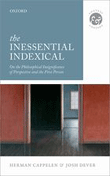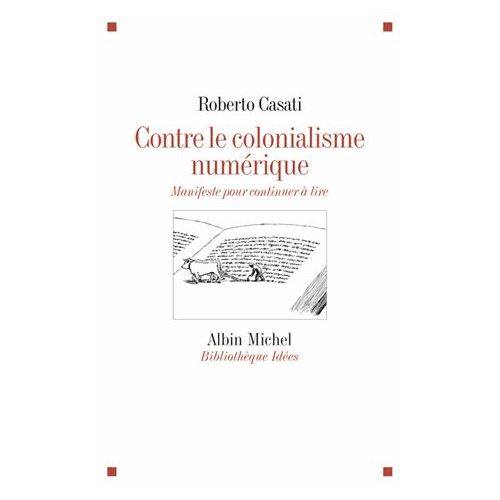LA VIE DU DEPARTEMENT

Changement de gouvernance du Département d'études cognitives / Institut d'étude de la cognition
A partir du 1er Janvier 2014, Sharon Peperkamp (DR CNRS, UMR LSCP Laboratoire de sciences cognitives et psycholinguistique)
prendra la direction du département et de l'institut, pour une période de 5 ans.
Sharon Peperkamp succède à Christian Lorenzi (Equipe Audition - UMR 8158 du CNRS/Paris V/ ENS )
qui a co-dirigé puis dirigé le DEC/IEC pendant sept ans.
EN BREF
Réseau Erasmus Mundus "Auditory Cognitive Neuroscience"

Le réseau Erasmus Mundus "Auditory Cognitive Neuroscience" a été prolongé de 2 ans. Ce programmme offre des financements aux étudiants et des bourses postdoctorales en sciences de l'audition. Il favorise les échanges entre les différents partenaires du réseau entre l'Europe et l'Amérique du nord.
Ce réseau organise aussi des workshops et des colloques sur des sujets de recherche pertinents.
Voici un premier appel à candidature: One to ten month mobility fellowships in Auditory Cognitive Neuroscience, beginning March 1st, 2014 (application deadline December 15, 2013).
En savoir plus sur le réseau Erasmus Mundus:
cliquez sur le visuel pour accèder au site internet.

Le livre Contre le colonialisme numérique de Roberto Casati (IJN), a fait partie de la deuxième selection du Prix littéraire du Savoir et de la Recherche 2013.
Le Prix littéraire du Savoir et de la Recherche récompense une œuvre littéraire en langue française qui privilégie la thèse, l’analyse,
la réflexion autour de tous les Savoirs et la Recherche scientifique, médicale ou non. Le Prix du Savoir et de la Recherche choisit un essai n’ayant jamais
été primé durant les neuf derniers mois depuis sa publication.
En savoir plus sur la page facebook du Prix littéraire du Savoir et de la Recherche
The "Context and Content" Series, nouvelle collection dirigée par François Recanati (IJN) parue chez Oxford University
Le premier titre de la nouvelle collection "Context and Content" que dirige François Recanati chez Oxford University Press vient de paraître
(The Inessential Indexical, par Herman Cappelen et Josh Dever) ; il sera suivi dans quelques mois par trois autres titres correspondant aux Context
and Content Lectures données à Paris par leurs auteurs : The Mirror of the World : Subjects, Consciousness and Self-Consciousness, par Christopher
Peacocke ; Assessment Sensitivity, par John MacFarlane ; et Context, par Robert Stalnaker.
Herman Cappelen and Josh Dever
 The Inessential Indexical
The Inessential Indexical
On the Philosophical Insignificance of Perspective and the First Person
OUP, 2013
Christopher Peacocke
 The Mirror of the World
The Mirror of the World
Subjects, Consciousness, and Self-Consciousness
OUP, 2013
John MacFarlane
Assessment Sensitivity
Relative Truth and its Applications
OUP, 2014
Boris Gutkin, professeur invité à la faculté de psychologie de la HSE (Higher School of Economics) de Moscou, Russie
Boris Gutkin (Group For Neural Theory/Laboratoire de Neuosciences Cognitives du DEC/IEC) a été nommé "External Professor" à la faculté de psychologie,
de la HSE à Moscou, et chercheur fondateur du laboratoire interdisciplinaire sur l'étude de la prise de décision. Ce nouveau laboratoire et centre de recherche
créé au sein de la faculté de psychologie concentrera ses recherches sur la prise de décision, la neuroeconomie et les neurosciences computationelles. Boris Gutkin
a été désigné pour diriger l'équipe de neurosciences computationnelles. Le premier projet sera de poursuivre une étude sur les influences homéostatiques
de la prise de décision sociale, fondée sur un modèle développé par Boris Gutkin avec l'aide de son étudiant, Mehdi Keramati.
En savoir plus sur:
- la faculté de psychologie de la Higher School of Economics.
- Boris Gutkin
- Mehdi Keramati
PUBLICATIONS
Cabrera, Bertoncini, Lorenzi. Perception of speech modulation cues by 6-month-old infants. JSLHR, Published online September 10, 2013.
Abstract
PURPOSE:
This study assessed the capacity of 6-month-old infants to discriminate a voicing contrast (/aba/-/apa/) on the basis of amplitude modulation cues (AM, the variations in amplitude over time within each frequency band) and frequency modulation cues (FM, the oscillations in instantaneous frequency close to the center frequency of the band).
METHOD:
Several vocoded speech conditions were designed to: (i) degrade FM cues in 4 or 32 bands, or (ii) degrade AM in 32 bands. Infants were familiarized to the vocoded stimuli for a period of either 1 or 2 min. Vocoded speech discrimination was assessed using the head-turn preference procedure.
RESULTS:
Infants discriminated /aba/ from /apa/ in each condition. However, familiarization time was found to influence strongly infants' responses (i.e., their preference for novel versus familiar stimuli).
CONCLUSIONS:
Six-month-old infants do not require FM cues, and can use the slowest (<16 Hz) AM cues to discriminate voicing. Moreover, six-month-old infants can use AM cues extracted from only four broad frequency bands to discriminate voicing.
Roberto Casati. Contre le colonialisme numérique. Manifeste pour continuer à lire. Albin Michel, 2013.
 Résumé:
Résumé:
Le livre papier est-il mort ? Non. Si le livre papier risque de devenir commercialement obsolète, cela ne signifie pas qu’il soit obsolète cognitivement. N’en déplaise aux colonialistes numériques, les nouveaux formats n’ont pas ouvert de nouveaux horizons de lecture ; au contraire, cette lecture a été volée.
Dans cet essai percutant, Roberto Casati montre comment choisir utilement entre des parcours qui capturent l’attention et d’autres qui la protègent.
C’est pourquoi l’introduction du numérique à l’école doit se faire prudemment et toujours être soumise à des évaluations rigoureuses. L’école et les
enseignants qui en sont la sève n’ont aucune raison de se laisser intimider par la normativité automatique qu’imposent les technologies nouvelles:
le « maître électronique » est un mythe. L’école, au contraire, est un espace protégé dans lequel le zapping est exclu. Accéder à l’information, ce
n’est pas lire ; lire, ce n’est pas encore comprendre; et comprendre, n’est pas encore apprendre. Il nous faut inventer les moyens de résister à la
culture de l’impatience.
Goodman DFM, Benichoux V, Brette R. Decoding neural responses to temporal cues for sound localization.eLife2:e01312, 2013
Abstract:
The activity of sensory neural populations carries information about the environment. This may be extracted from neural activity using different
strategies. In the auditory brainstem, a recent theory proposes that sound location in the horizontal plane is decoded from the relative summed
activity of two populations in each hemisphere, whereas earlier theories hypothesized that the location was decoded from the identity of the most
active cells. We tested the performance of various decoders of neural responses in increasingly complex acoustical situations, including spectrum
variations, noise, and sound diffraction. We demonstrate that there is insufficient information in the pooled activity of each hemisphere to estimate
sound direction in a reliable way consistent with behavior, whereas robust estimates can be obtained from neural activity by taking into account
the heterogeneous tuning of cells. These estimates can still be obtained when only contralateral neural responses are used, consistently with
unilateral lesion studies.
En savoir plus sur le site www.eurekalert.org.
Uriah Kriegel. Current Controversies in Philosophy of Mind. Series: Current Controversies in Philosophy.Routledge, 2013
 Abstract:
Abstract:
Philosophy of mind is one of the most dynamic fields in philosophy, and one that invites debate around several key questions. There currently exist annotated tomes of primary
sources, and a handful of single-authored introductions to the field, but there is no book that captures philosophy of mind’s recent dynamic exchanges for a student
audience. By bringing compiling ten newly commissioned pieces in which leading philosophers square off on five central, related debates currently engaging
the field, editor Uriah Kriegel has provided such a publication.The five debates include:
- Mind and Body: The Prospects for Russellian Monism
- Mind in Body: The Scope and Nature of Embodied Cognition
- Consciousness: Representationalism and the Phenomenology of Moods
- Mental Representation: The Project of Naturalization
- The Nature of Mind: The Importance of Consciousness.
Preliminary descriptions of each chapter, annotated bibliographies for each controversy, and a supplemental guide to further controversies in philosophy of mind (with bibliographies) help provide clearer and richer views of active controversies for all readers.
Joelle Proust (2013).
The Philosophy of Metacognition - Mental Agency and Self-Awareness The Journal of Neuroscience, 33(27), 11296-11301.
 Abstract:
Abstract:
Does metacognition, i.e. the capacity to form epistemic self-evaluations about one's current cognitive performance, derive from a mindreading capacity, or does it rely, at least in part, on sui generis informational processes?
In The Philosophy of Metacognition Joëlle Proust provides a powerful defense of the second position. Drawing on discussions of empirical evidence
from comparative, developmental, and experimental psychology, as well as from neuroscience, and on conceptual analyses, she purports to show that,
in contrast with analytic metacognition, procedural metacognition does not need to involve metarepresentations. Procedural metacognition seems to be
available to some non-humans (some primates and rodents). Proust further claims that metacognition is essentially related to mental agency, i.e.
cognitive control and monitoring. 'Self-probing' is equivalent to a self-addressed question about the feasibility of a mental action ('Am I able to
remember this word?'). 'Post-evaluating' is a way of asking oneself whether a given mental action has been successfully completed ('Is this word the
one I was looking for?'). Neither question need be articulated conceptually for a feeling of knowing or of being right to be generated, or to drive
epistemic control. Various issues raised by the contrast of a procedural, experience-based metacognition, with an analytic, concept-based
metacognition are explored, such as whether each is expressed in a different representational format, their sensitivity to different epistemic norms,
and the existence of a variety of types of epistemic acceptance.
Ramus, F. (2013). What's the point of neuropsychoanalysis? British Journal of Psychiatry, 203, 170-171
Summary:
Neuropsychoanalysis is a new school of thought attempting to bridge neuroscience and psychoanalysis. Yet few neuroscientists and psychiatrists would have heard of it if it had not recently received public
support from notable neuroscientists. The present paper discusses whether such support is warranted.
COLLOQUIUM DE L'IEC/DEC
Salle Langevin, 29 rue d'Ulm, 75005 Paris, les mardis de 11h30 à 13h jusqu'au 21 janvier 2014. A partir du 28 janvier 2014, les horaires du colloquium changent: il aura lieu de 12h à 13h30.
Retrouvez le programme du Colloquium sur le site du DEC/IEC.
AGENDA
Retrouvez l'intégralité de l'agenda de l'Institut d'étude la cognition sur le site de l'IEC.
